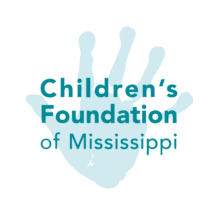2020 Household Pulse Survey, Mississippi Results: Food Insecurity
This is the second in the Children’s Foundation of Mississippi series of blog posts to spotlight how our children and families are faring during the COVID pandemic. The results of this national survey measure the ‘pulse’ of U.S. households on a number of topics including: loss of employment income and anticipated loss of income; food scarcity, delayed medical care,
housing insecurity and changes in K-12 education. Our focus will be on the results specific to Mississippi. This week, we are talking about hunger resulting from food insecurity, building upon last week’s blog on delayed medical care. (https://www.census.gov/datatools/demo/hhp/#/?s_state=00028)
This moment calls us to make sure that everyone can weather this storm. For everyone’s wellbeing, we need to set up and maintain strong nutrition assistance programs.

In essence, food insecurity and hunger are health issues, impacting children and families’ physical and mental well-being. When one’s physical and mental well-being are compromised, the workforce is less productive. Among children, research has shown that food insecurity can lead to low academic performance, low birthweight and, not meeting developmental
milestones (Mississippi KIDS COUNT Factbook, 2019)
In the early weeks of the pandemic, the country witnessed the complexities of the food supply chain and the delivery of food where it was needed. We can think of the availability of resources as being like a power grid, we need a system that allows healthy food to be available all over the country. As the weeks of the pandemic go forward, we can see that the food chain and delivery system work well in some areas of the country, but are spotty in some areas. Even when the food supplies reach the grocery stores, these may not be as accessible in rural areas. We need to focus our efforts first on areas where the grid is patchiest so that everyone can plug in, power up and be well!

More than one in five (21%) of Mississippi’s respondents reported that they are experiencing food insecurity during the pandemic. Now hunger is increasing—and we need to step in. For children and adolescents, whose bodies and minds are still under construction, missing meals could have a long-term effect on health and learning. Food insecurity is often described as not always having enough food and not being able to access healthy food for all members of a household. Even prior to the pandemic, 23% of Mississippi’s children lived in food insecure households.
It is not uncommon to know of households who must “weigh” the cost-benefits of paying bills such as prescriptions and monthly rents, over purchasing healthy foods (which tend to be more expensive). The shuttering of businesses and other economic pressures will likely result in food insecurity continuing to increase across the state.
Mississippians take care of one another and we have been stepping up (even prior to the pandemic) through community and church food banks. Programs such as Extra Table and the Mississippi Food Network continue to make substantial contributions to combatting hunger. When school districts did not re-open after spring break, due to the pandemic, communities
across the state have come together to assure that children could still access school lunches. Some districts continued to utilize bus routes to distribute food, while others had “curbside” locations across the municipalities and county sites. The ways that many communities galvanized, often via public-private partnerships, have been inspiring.
And we need to keep it up
With record unemployment, delayed health care and continual economic stressors, it is critical that we continue to take action to combat hunger across our state, now more than ever. Public-private partnerships on a community level hold great promise of decreasing food insecurity and promoting increased health and well-being for Mississippi’s children and families now and post-pandemic.
We all have a role to play in making sure that everyone in Mississippi is able to plug in to the things we all need to thrive. Please help us by sharing this series of blog posts with others in your networks. Working together, we can make a difference in the lives of children, adolescents, families and communities across our state!


